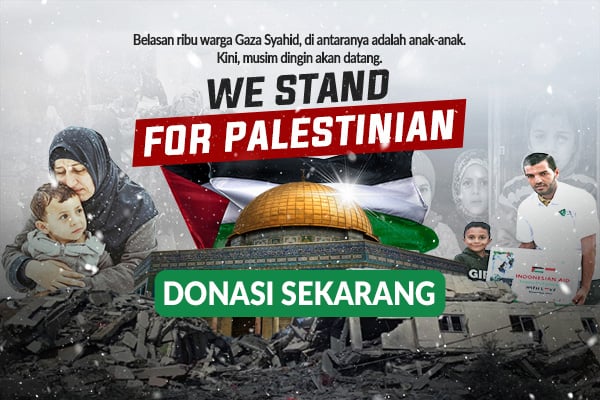Baitul Maqdis, known as the “Third Holiest Site” in Islam, is not just a mesmerizing historical site in Jerusalem. Beyond that, Baitul Maqdis is a sacred complex that holds spiritual heritage for three major religions: Islam, Christianity, and Judaism. With a rich history, Baitul Maqdis bears witness to the conflict of Zionist cruelty and the suffering of the Palestinian people, where every stone and corner tells profound stories of belief, resistance, and the desire for freedom. Let’s explore the richness and complexity of Baitul Maqdis, a spiritual center that continues to be the focus of the world’s attention.
Baitul Maqdis: A Spiritual Center for Three Religions
Baitul Maqdis, or Al-Quds, has deep historical roots. For Muslims, Jews, and Christians, this place holds significant importance. In Islam, Baitul Maqdis is considered the third holiest site after Mecca and Medina. The structures within Baitul Maqdis include the Al-Aqsa Mosque, the Dome of the Rock, and the Western Wall. The Al-Aqsa Mosque is the third mosque built after the Masjid al-Haram and the Prophet’s Mosque. The Dome of the Rock, located in the midst of Al-Aqsa, holds high historical and religious value.
History of Baitul Maqdis: Shifts in Power and Influence
- Islamic Caliphate Period: During the Islamic Caliphate, Baitul Maqdis was under Islamic rule for centuries, starting from the first caliph, Umar bin Khattab. At that time, the mosque and its surroundings became a center of scientific and cultural activities.
- Shifts in Power: Throughout history, Baitul Maqdis experienced shifts in power between Muslims and non-Muslims. During the Crusades, the city was controlled by Christian Crusader forces but was later returned to Muslim hands under the leadership of Salahuddin Al-Ayyubi.
- Religious and Cultural Influence: The influence of the three major religions, Islam, Christianity, and Judaism, created layers of cultural diversity and architecture in Baitul Maqdis. The presence of various places of worship from these three religions reflects the tolerance and harmony that once existed there.
Baca Juga: Fakta Konflik Israel Palestina yang Penting Diketahui
Conflict at the Tense Epicenter of the Holy Land
The Israel-Palestine conflict began with the land partition in 1947 by the UN. The territory previously inhabited by the Palestinian people was partly allocated for the establishment of the state of Israel, leading to disputes and suffering for the Palestinian people.
Subsequently, the Arab-Israeli War of 1948 occurred. Following the declaration of the state of Israel, war broke out between Arab countries and Israel. This war resulted in territorial changes and increased tensions in the region.
The Palestinian people experienced rebellion and occupation, especially after the Six-Day War in 1967. Israel occupied East Jerusalem, including Baitul Maqdis, previously controlled by Jordan. The conflict continued with a series of events, including the Intifada, which was a popular uprising by the Palestinian people. The conflict in the Gaza Strip intensified, creating instability and suffering in the area.
Friends, witnessing the suffering and uncertainty experienced by the Palestinian people, let’s show solidarity and humanitarian assistance. Our support can help alleviate the burden they bear. Educating about this conflict and raising global awareness can be the first step. Understanding the history and impact of the conflict is key to building better comprehension. Moreover, we can also encourage diplomatic efforts and peace, which are greatly needed. Inviting countries and relevant parties to commit to a fair and sustainable conflict resolution.
Baca Juga: Masjid di Palestina yang Sulit Dikunjungi Penduduknya Sendiri
Together on the Path to Justice
Friends, we are part of one humanity. Let’s collectively immerse ourselves in the history of Baitul Maqdis, understand the detrimental conflict for Palestine, and invite others to help the Palestinian people achieve the independence they long for.
Through education, awareness, and concrete actions, we can be a voice for those unheard. Friends, let’s unite in the spirit of humanity to support our brothers and sisters in Palestine to create a fairer and more peaceful world, where every individual can live with dignity and freedom.




